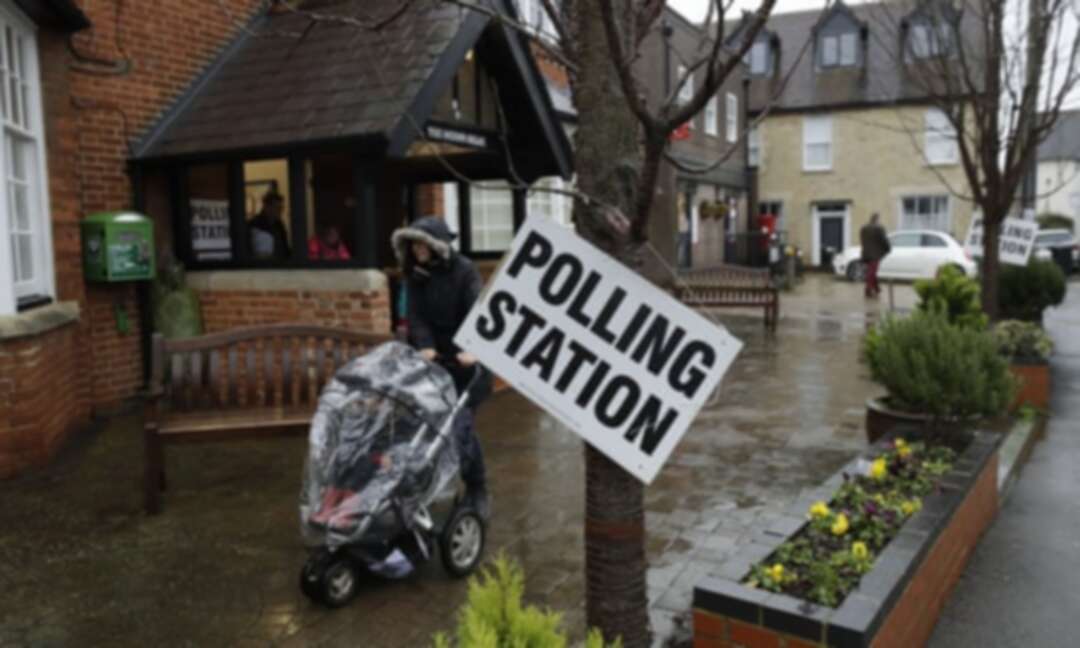-
Elections in England and Wales to go ahead in May despite Covid

‘Democracy should not be cancelled because of Covid,’ says minister
Local and mayoral elections in England are to go ahead in May as planned, the government has confirmed, with councils allocated extra money to help make voting and the counting process safe amid coronavirus.
Under a plan published on Friday by the Cabinet Office, polling stations will be fitted with screens and hand-sanitiser, while voters who have to isolate or shield can nominate a proxy as late as 5pm on polling day, 6 May.
Councils across England will be given an extra £31m in funding to help make the polls safe.
Electoral officials have been expecting the polls to take place, and have already made plans for what could be some of the most logistically complicated elections held for decades.
As well as the elections due this year, people will also cast votes in polls postponed from last May. Along with this double set of council elections, there will be ballots for the London mayor and assembly, for a series of other mayors, and for police and crime commissioners (PCCs). In some places in England, voters will be handed up to seven ballot papers.
Scotland and Wales are holding elections on the same day for their parliaments, and for PCCs in Wales. While these are also expected to take place, each UK nation organises its own elections.
Although the rapid progress of the vaccination programme has assisted election planning, officials will have to adapt to some polling stations being closed, or potentially used for other purposes, such as vaccination centres.
A high proportion of election volunteers are also older, which will place additional impetus on the need for the vaccine rollout to have happened smoothly by May.
Chloe Smith, the Cabinet Office minister whose brief covers elections, said the vaccination programme “means that we can commit to go ahead with these polls with confidence”, and pointed to elections that had already taken place in countries including the US.
Smith said: “Everyone who feels comfortable going to a supermarket or a post office should also feel confident attending a polling station in May. We encourage anybody who is shielding, or who would prefer not to attend a polling station, to apply for a postal or proxy vote ahead of the polls.”
She added: “Democracy should not be cancelled because of Covid.”
One area not yet finalised is how parties and candidates will be able to campaign, with a plan due to be announced before the start of the formal election period, which will depend on whether social distancing measures have been relaxed by then.
The planning document notes that currently the only permissible forms of campaigning would be online campaigning, by telephone, or leaflets sent by post or other commercial delivery services.
However, the document says, it is “vital that voters are fully informed and all candidates have a level playing field in making their case to the electorate in order for elections to be fair and effective”, and further information will come later.
One complicating element from recent English elections will not be a factor in May – mandatory voter ID.
The Cabinet Office tested the controversial plan, which charities and other groups have warned could put off older or more vulnerable voters, in the 2018 and 2019 local elections. The government is now expected to table a law later this year for this to happen in all English and UK-wide elections from 2023.
source: Peter Walker
Levant
You May Also Like
Popular Posts
Caricature
BENEFIT Sponsors BuildHer...
- April 23, 2025
BENEFIT, the Kingdom’s innovator and leading company in Fintech and electronic financial transactions service, has sponsored the BuildHer CityHack 2025 Hackathon, a two-day event spearheaded by the College of Engineering and Technology at the Royal University for Women (RUW).
Aimed at secondary school students, the event brought together a distinguished group of academic professionals and technology experts to mentor and inspire young participants.
More than 100 high school students from across the Kingdom of Bahrain took part in the hackathon, which featured an intensive programme of training workshops and hands-on sessions. These activities were tailored to enhance participants’ critical thinking, collaborative problem-solving, and team-building capabilities, while also encouraging the development of practical and sustainable solutions to contemporary challenges using modern technological tools.
BENEFIT’s Chief Executive Mr. Abdulwahed AlJanahi, commented: “Our support for this educational hackathon reflects our long-term strategic vision to nurture the talents of emerging national youth and empower the next generation of accomplished female leaders in technology. By fostering creativity and innovation, we aim to contribute meaningfully to Bahrain’s comprehensive development goals and align with the aspirations outlined in the Kingdom’s Vision 2030—an ambition in which BENEFIT plays a central role.”
Professor Riyadh Yousif Hamzah, President of the Royal University for Women, commented: “This initiative reflects our commitment to advancing women in STEM fields. We're cultivating a generation of creative, solution-driven female leaders who will drive national development. Our partnership with BENEFIT exemplifies the powerful synergy between academia and private sector in supporting educational innovation.”
Hanan Abdulla Hasan, Senior Manager, PR & Communication at BENEFIT, said: “We are honoured to collaborate with RUW in supporting this remarkable technology-focused event. It highlights our commitment to social responsibility, and our ongoing efforts to enhance the digital and innovation capabilities of young Bahraini women and foster their ability to harness technological tools in the service of a smarter, more sustainable future.”
For his part, Dr. Humam ElAgha, Acting Dean of the College of Engineering and Technology at the University, said: “BuildHer CityHack 2025 embodies our hands-on approach to education. By tackling real-world problems through creative thinking and sustainable solutions, we're preparing women to thrive in the knowledge economy – a cornerstone of the University's vision.”
opinion
Report
ads
Newsletter
Subscribe to our mailing list to get the new updates!






















